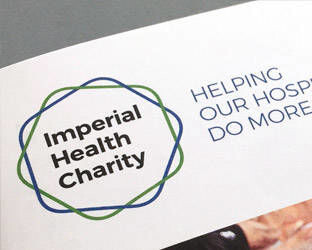Volunteers and their therapy dogs spread a smile at intensive care
Volunteers and their therapy dogs spread a smile at intensive care
10 November 2022

Their condition, and the specialist care they’re receiving, often leaves patients feeling lonely, isolated, and craving a connection.
That’s why we’ve worked with national charity Pets as Therapy to bring specially trained dogs to the ICU at Charing Cross Hospital, helping to lift the spirits of seriously ill patients.
Our human volunteers are working closely with NHS staff to identify the patients who would benefit the most from their four legged friends, bringing the therapy dogs to their bedside to play and offer companionship.
Studies have shown that dogs on the ward can help decrease stress levels and alleviate fear even in some of the sickest patients, something our volunteers have experienced first-hand.
Sophie Graham, who volunteers at the Charing Cross Hospital ICU with her Pets as Therapy dog Sarla, said:
“There was one woman who was 70 and scared of dogs. Initially she didn’t to see Sarla but we managed to charm her and soon she was having her on her bed and taking pictures of her, and even told me she was going to get one. She rang her daughter and said ‘you’re never going to believe this but I’ve met this lovely dog’. It was really sweet.
“Some patients are too ill or not in the mood, some of them just prefer cats – we get a few rejections - but mostly people are keen to see her!
"It's good for rehabilitation for the patients and calming them down. It takes their minds off their pain."
Sophie Graham, Animal Visitor Volunteer
The dogs are rigorously vetted by Pets as Therapy to make sure they’re the right temperament for the hospital environment, and strict hygiene guidelines to ensure there’s no risk to anyone on the wards.
Sophie said: “The physios feel it's good for rehabilitation for the patients and calming them down. It takes their minds off their pain. You're just genuinely cheering them up when they're feeling miserable.”


